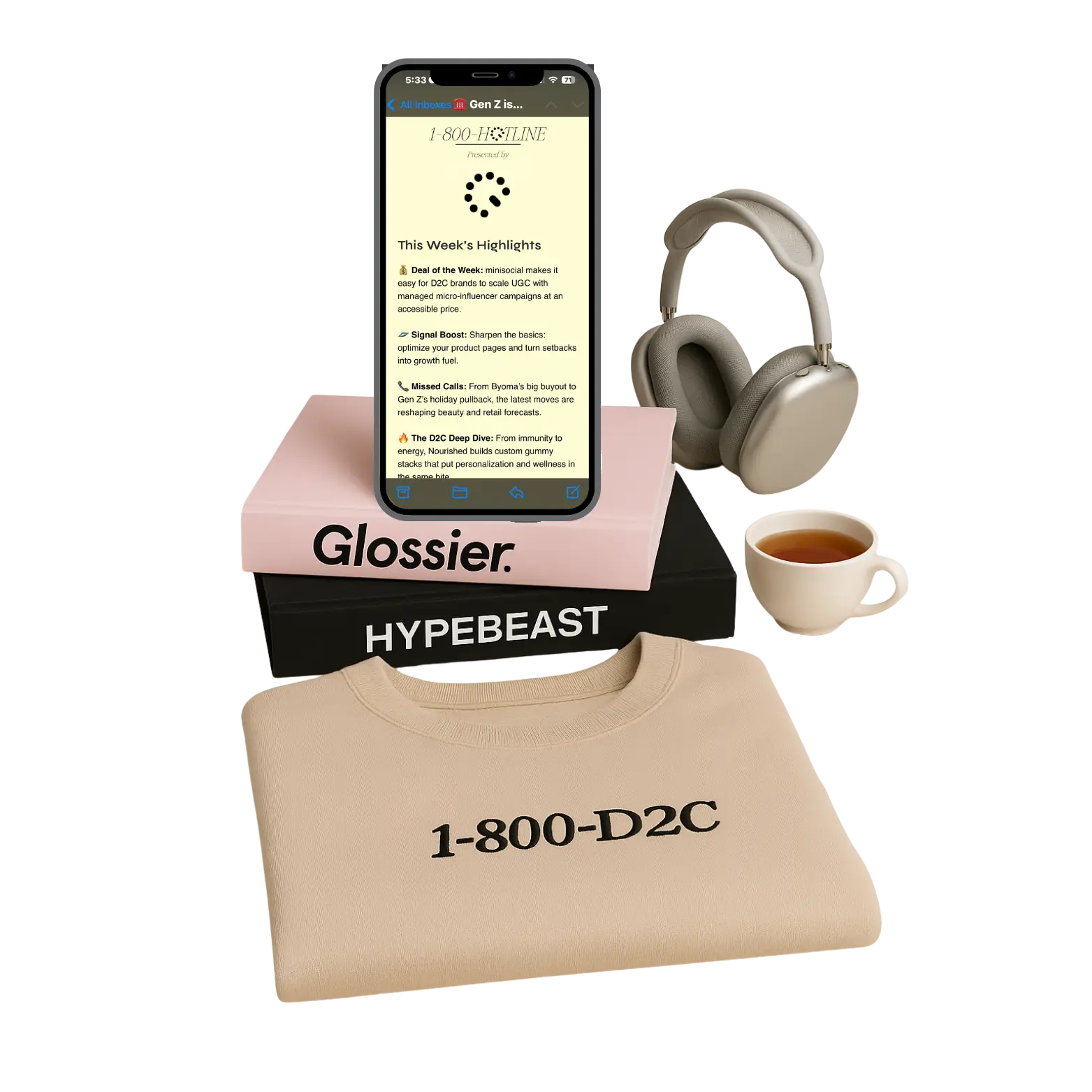
I was first exposed to the world of e-commerce at a very young age, I opened an ebay account to sell my unwanted Christmas toys as a child. I continued selling on marketplaces and my own websites all the way through middle school then high school, and eventually worked at an automotive parts company before college. Across these experiences, I felt the pains that small and larger DTC and B2B brands encounter every day - how do you manage your inventory effectively, efficiently ship your products, and how do you track and communicate everything with every customer on every order? No matter the size, brands were struggling to manage all the minutiae of meeting customer expectations, keeping up with their growth, coordinating disparate partners, and doing so at scale.
These pains were one of the largest sources of costs and headaches, while also being one of the biggest detractors in my reviews and customer NPS.
Living this problem first hand is what drove me to co-found Stord with Jacob Boudreau. Together we sought to find a single platform that brands could tap into, an “infrastructure as a service”, that would unify the fractured ecosystem of commerce enablement and provide brands with the necessary physical fulfillment capabilities and technologies to improve cart conversions. Ultimately unlocking the same consumer experience provided by the massive ecommerce giants, but now for businesses of all sizes. The vision was that, with this “Prime-like” checkout and delivery ability, we could level the playing field, and help brands drive higher cart conversion, lower costs, and ensure happier consumers.
The biggest lesson a brand can learn from Stord customers is this - to excel at providing excellent customer experience you must focus on everything for every order and nail it every time. Unfortunately, brands can no longer grow simply because of a great product, or great marketing, or great customer service. If your packages arrive late, customers will go elsewhere. Slow and expensive shipping options? Customers will go somewhere else. Damaged products. Wrong orders. Out of stock messages. The list is massive. In the crowded e-commerce space, if you are not prepared you will lose customers to someone else.
That said, 59% of US consumers are loyal to a brand for life once that loyalty is earned, so the reward of getting everything right is massive. That is what we focus on providing for our customers, helping them ensure they have the tools they need to help drive cart conversions and follow through with the necessary post-purchase communication, deliver their orders flawlessly and facilitate any post-delivery resolutions with ease.
To grow your e-commerce business you absolutely must sweat the small stuff, and find partners you can trust to help because doing this alone is a truly daunting task.
When scaling for growth, most brands fall short because their infrastructure is not as scalable as their product. While they hope to earn massive growth and they invest in the product and the marketing to achieve that growth - the efforts to meet and sustain that growth from an operational perspective is ignored.
Understandably, early on brands typically opt for the cheapest solutions to get started, thereby they cobble together solutions across many different providers, and create a massive headache for themselves, their team, and their customers down the road.
It isn’t surprising that many fall into this trap. Particularly for first time founders, how could they know how to develop deep relationships across multiple carriers? Or how to manage their inventory effectively? How do you handle exceptions when an order doesn’t go as planned, and how do you manage the communication with your customer when it happens? These are learnings that are hard won and even if you have experienced the problem, you may not know that there are solutions out there.
So, my advice to DTC founders is to plan for the growth you expect, as early as you are able to. Educate yourself on the systems and solutions you will need and invest in partnerships with companies that know more about this field and can scale with you. Your consumer experience is made up of more than just the quality of the product and the marketing - if you can’t reliably get your products to your end consumers, it won’t matter how great the product is - that crucial planning is something we focus on extensively at Stord.
We have spent the better part of a decade building all the systems, technologies, and physical infrastructure so that any brand can compete and deliver the same consumer experience that customers have grown to expect.
Prime and other massive multinational companies have conditioned consumers to expect 2-day delivery, flawless communication, and intuitive systems to accelerate the cart transaction and the post-purchase exception handling.
And that is exactly what we have built. Not only do we have fulfillment centers across the United States, Canada, United Kingdom, and Netherlands; we also have a huge suite of technological solutions to maximize your consumer experience while safeguarding your margins. We have solutions to help select the most cost-effective parcel option for every order across national and local carriers. We have intelligent warehousing models to help determine the best locations for your products to meet customer demand. We provide estimated delivery dates and shipment protection tools to help communicate and increase cart conversion. We have order routing and workflows so you can select the best strategies to fulfill for your customers.
In essence, Stord is a fully integrated solution to ensure your consumers always get the best experience on every order every time. No more cobbled together partners and disparate systems - one team, one technology, one company working in perfect concert with yours to help you grow your business.

Stord is a commerce enablement provider that powers seamless customer experience from presale to post-purchase delivery through integrated fulfillment, transportation, and software solutions for brands across all channels and marketplaces. By combining digital and physical logistics, Stord helps brands optimize costs, enhance delivery speeds, and improve overall customer satisfaction.
The change brands need to be prepared for is the proliferation of omnichannel e-commerce demand paired with ever-growing expectations.
In order for brands to be competitive, they will need to reach customers wherever they may be. Social selling. Websites. Marketplaces. And even brick and mortar stores. E-commerce shoppers will expect their favorite products to be wherever they are and be available with inventory at all times. Oh, and they will expect it to arrive in 2-days or less. Flawlessly.
We are already working to ensure all current and future sales channels are seamlessly integrated into our order management system, so that no matter where your orders come from we are ready to fulfill them. This means heavy investments in our inventory management capabilities. This means complex analysis of customer demand data so that products are situated closest to where they will be demanded.
This also means a continued investment in greater coverage and more efficient last-mile solutions. Ensuring that products are packaged in the most efficient options, delivered with the best carriers, and customer communication is automatic at every step.
The best thing is that Stord is already doing all of this today. We will continue to improve these efficiencies, continue to add new ways to get 1% better here and 1% better there. We are not reinventing the wheel. We are simply managing everything and finding small, yet impactful, improvements across the millions of steps needed for a product to go from the porch to your end consumer's hand.
While there are plenty of things we could have done better or done differently, those are important learnings that have propelled us to where we are now.
In fact, we have a saying here - that it is always Day 1. We embrace that energy and enthusiasm of just starting out, of trying new things, and with that also comes embracing the missteps and failures along the way.
So, there is nothing we would change, because today and every day going forward is Day 1 for Stord.
Discover new D2C brands, new eCommerce tools and read in-depth founder reviews each week.
